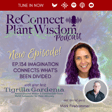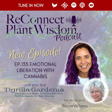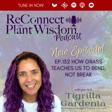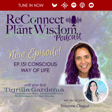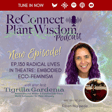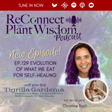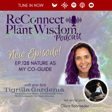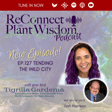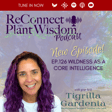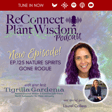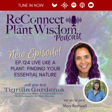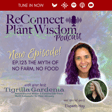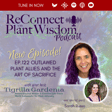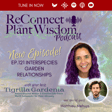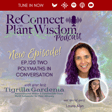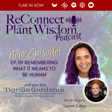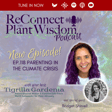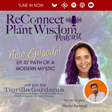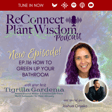
Ep.91 Embracing Natural Cycles: Menopause and Perimenopause with Amanda Tracy
In this episode, I had a heartfelt and insightful conversation with Dr. Amanda Tracy, a naturopathic doctor specializing in perimenopause and menopause. We delved into the often-overlooked aspects of these transitions, discussing the emotional and physical changes that come with them. We explored the profound impact of embracing natural cycles and how understanding these rhythms can lead to greater ease and purpose in life.
This discussion isn't just for women—there's valuable information for men to understand their partners better and their own natural cycles. Whether you're a woman experiencing these changes or someone wanting to understand them better, this episode offers valuable insights and practical wisdom.
Topics Covered about perimenopause and menopause
➡️ Emotional and physical changes during perimenopause and menopause
➡️ Insights for both women and men on navigating these transitions
➡️ Holistic support and understanding emotional and physical symptoms
➡️ Practical advice on aligning with natural rhythms to navigate these transition
Resources Mentioned
- Free Hormone Supporting Recipe Guide
- Perimenopause Playbook Workshop LIVE Workshop
- Plant Wisdom Book Club
- Embrace the Wisdom of Your Inner Plantness
🌟Connect with nature-conscious creatives, multipotentialites, and naturentrepreneursin the premier online ecosystem that nourishes plant reawakening and community support for accelerated evolution and co-creation with otherkin. >> JOIN OUR COMMUNITY <<
☝🏽ReConnect with Plant Wisdom podcast Ancient and modern knowledge from biology to spirituality about the wondrous ways plants help you lead a Naturally Conscious life. Subscribe on your favorite podcast player.
// Let's work together: book a Discovery Call
// EcoConscious Business Partners: Who Gives A Crap? Ecological Toilet Paper USA | UK | AU
// Opening and Closing music by Steve Sciulli and Poinsettia from The Singing Life of Plants
// Socialize with me Facebook | Instagram | LinkedIn | Youtube

